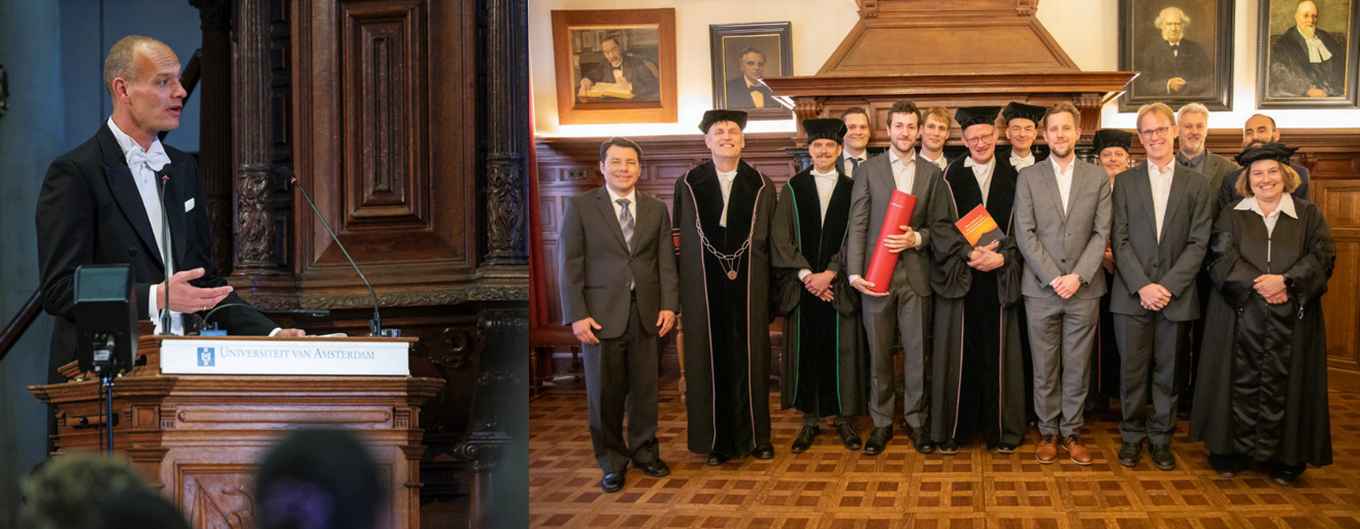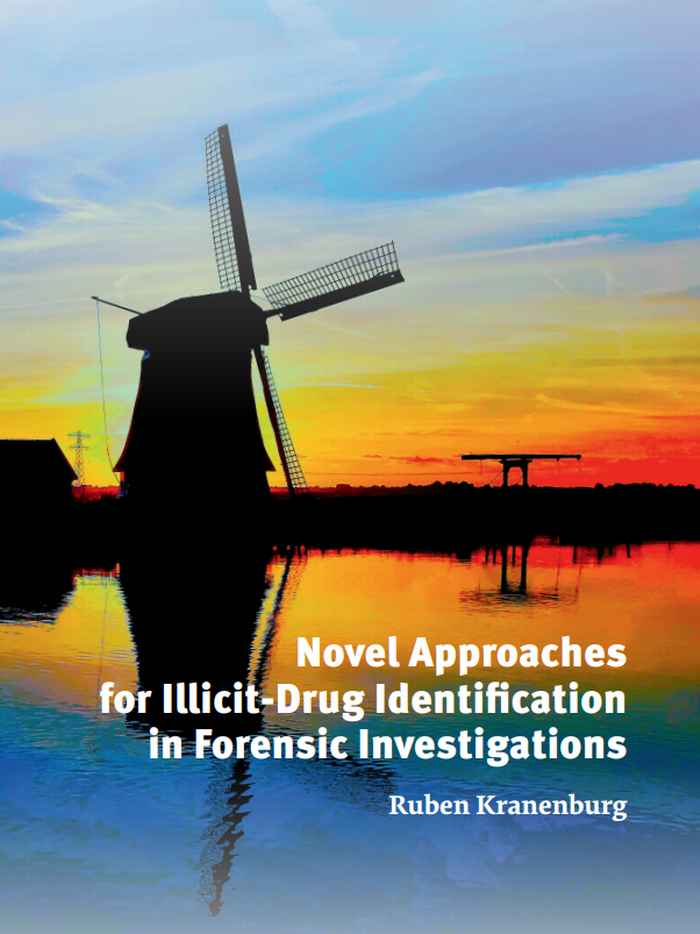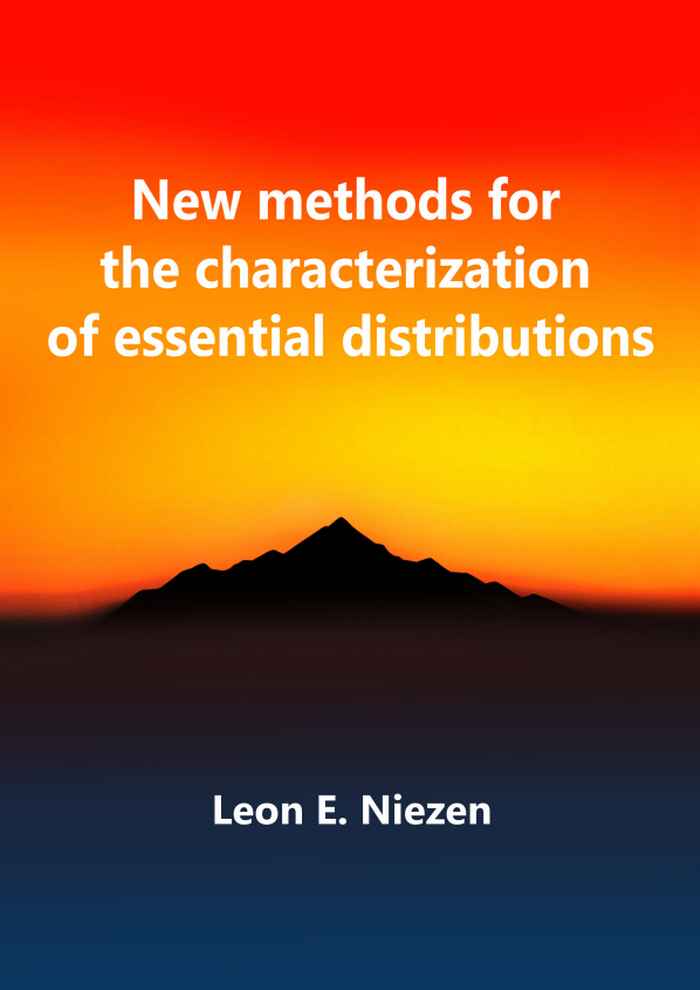Cum laude for Leon Niezen and Ruben Kranenburg
18 May 2023

Leon Niezen obtained his doctorate under supervision of professors Peter Schoenmakers and Govert Somsen (Vrije Universiteit Amsterdam). Ruben Kranenburg was supervised by professors Arian van Asten and Peter Schoenmakers.

Abstract thesis Ruben Kranenburg: The forensic illicit-drug analysis field is facing challenges in both an increasing number of seized substances and an increasing complexity of the encountered drugs due to the emergence of 1000+ new designer drugs (new psychoactive substances, NPS) in the last decade. Consequently, forensic laboratories are confronted with both an increasing workload and limitations of the current analytical methodology in terms of selectivity and efficiency. This thesis presents novel approaches for illicit-drug identification focused around two main themes: the NPS challenge, and on-scene drug analysis with portable technology. The NPS analysis part presents seven chapters describing new methodologies to differentiate and identify designer drug analogues with techniques such as GC-VUV, GC-FTIR, infrared ion spectroscopy, and chemometric analysis of GC-MS data. The portable technology part presents nine chapters on the applicability, concepts, and evidential value of mobile detection of drug-suspected items directly at the crime scene. Near-Infrared (NIR) spectroscopy, Raman spectroscopy, and electrochemical detection-based methods were developed and tested on casework samples seized by the Netherlands Police. For NIR spectroscopy, various sensors operating in different wavelength ranges were compared and evaluated for its applicability in the forensic field. Overall, this thesis provides new methods and approaches that contribute to a more robust, reliable, and efficient illicit-drug identification in the forensic investigation process.
R.F. Kranenburg: Novel approaches for illicit-drug identification in forensic investigations. Read the thesis at the UvA repository.

Abstract thesis Leon Niezen: The detailed analysis of polymeric materials is one of the necessary steps to elucidate the relationship between the chemical distributions of a polymer and the functional properties of a material. Within the UNMATCHED project (UNderstanding MATerials by CHaracterizing Essential Distributions) many techniques have been investigated – or further developed – to aid in the analysis of such materials. The primary focus of this thesis was on using liquid chromatography (LC) in innovative ways to analyze polymer chemical distributions. Additionally, chemometric strategies that help improve the interpretability of the data obtained from these methods were investigated and documented in later chapters.
L.E. Niezen: New methods for the characterization of essential distributions. Read the thesis at the UvA repository.